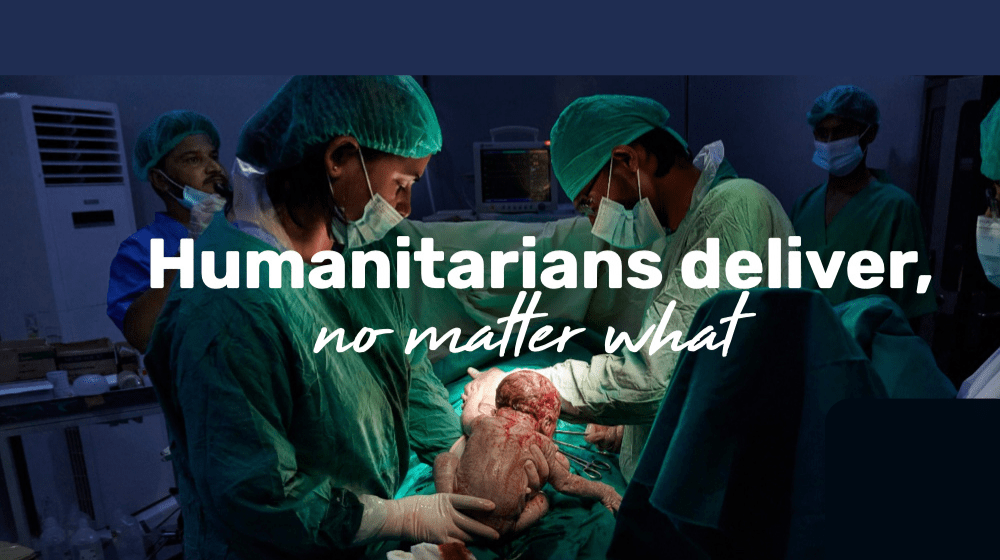On the occasion of World Humanitarian Day, observed on 19 August, United Nations Population Fund Asia-Pacific Regional Director, Björn Andersson, says humanitarians need protected access to provide life-saving care during crises and that governments need to do more to prepare for emergencies of the future.
Humanitarians are on the front line of conflicts, climate disasters and complex crises across Asia and the Pacific. They go into these emergencies to deliver life-saving support and safeguard everyone’s right to dignity, safety and protection. Humanitarians risk their own safety to help others because they believe in the humanity that connects us. Through their strong sense of duty, selflessness and courage, humanitarians show us what is possible when we work for a greater purpose, when we work together.
Humanitarians deserve our deepest respect and unwavering support. On World Humanitarian Day, we honour the tireless work colleagues are doing to respond to various humanitarian needs across Asia and the Pacific, including in Afghanistan, Myanmar, Pakistan, Bangladesh, Sri Lanka, Vanuatu, the Philippines and Indonesia.
There are so many obstacles that stand in the way of the work of UNFPA humanitarians and our partners; violence and armed conflicts, opponents of sexual and reproductive rights, extreme weather conditions, destroyed infrastructure and a multitude of challenges of families living in makeshift shelters, to name just a few. The combined effects of extreme weather conditions and insecurity means that humanitarian work is more difficult and more dangerous than ever.
As humanitarians have shown time and again, there is no obstacle that can stop the work to help fellow humans in crisis. Despite the life-threatening challenges humanitarians face in every emergency, UNFPA and our partners are on the ground, to uphold the rights of marginalised groups by delivering life-saving sexual and reproductive health services. We know from experience that reports of violence increase after emergencies, and that is why we support countries with preparedness efforts and essential health services in emergencies. UNFPA is able to respond to gender-based violence by protecting marginalised groups and delivering programmes that reduce the risk of violence at the community level.
As we saw in the response to the November 2022 earthquake in Cianjur, Indonesia, within just 24 hours after the disaster, humanitarian teams set up emergency facilities for women and girls to have safe births. In every crisis, from natural disasters to armed conflicts, UNFPA deploys mobile health units that offer family planning services, antenatal care and postnatal care.
One of the priorities in an emergency is to set up women-friendly spaces to offer a safe place for women and girls to connect and recover from what they have been through. These centres are special places to get emotional support and services while they are displaced from their homes.
UNFPA is committed to ensuring that dignity is central to how humanitarians will respond to emergencies in the future. Climate disasters are not distant possibilities; we see emergencies increasing in frequency, intensity and even duration. Every household, in every community, needs to be better prepared.
Decades of emergency responses in the region have given UNFPA critical knowledge on how to prepare for disasters. We know that sexual and reproductive health needs to be integrated into national and local disaster response plans. This means prepositioning emergency reproductive health kits and training local health workers on how to provide gender-responsive care.
Together with our partners, we work towards building the resilience of communities so they know how to respond in a crisis. As we prepare and plan for the impacts of climate change, sexual and reproductive health and gender-based violence cannot be peripheral issues tacked on as an afterthought; they are central to upholding dignity, especially in disasters.
World Humanitarian Day is an opportunity for us to express our support and gratitude for the heroes on the front lines of the multiple crises across the region. Today and every day, in dangerous situations and against unbelievable odds, humanitarians deliver, no matter what.


